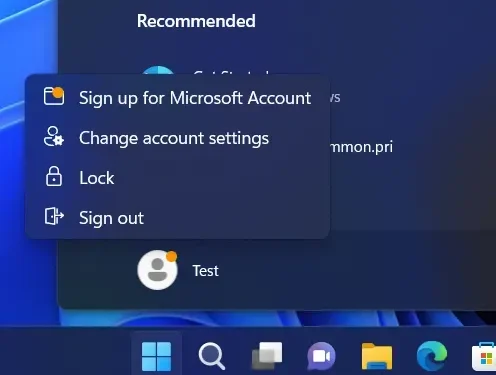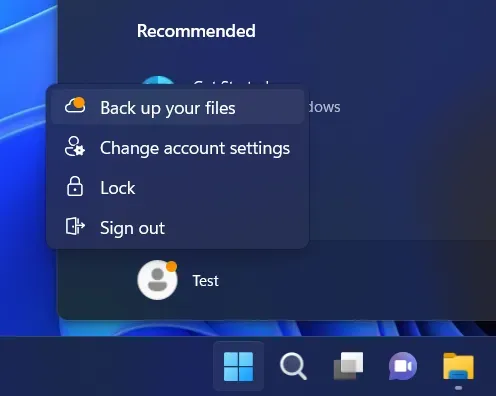The login menu is the last frontier of Microsoft ads in Windows 11.

Microsoft is always adding new features to Windows 11, but some of these changes are more positive than others. Case in point: Twitter user Albacore noticed new hints in Windows 11 encouraging users to use Microsoft accounts and back up their files using Microsoft OneDrive. They were hidden in the operating system’s login menu using an orange “pay attention to me”indicator dot, similar to the one used on the power button, to signal that Windows updates are ready to be installed.
We haven’t seen these messages on our own Windows 11 PCs, but Microsoft regularly A/B tests these UI tweaks, even on Windows 11 releases (some of our PCs have a new search menu with the word “Search”). “, while others only have a magnifying glass icon, although both systems are running the latest version of Windows 11 22H2). This may only affect some Windows Insider builds, or a limited number of Windows 11 PCs. This Twitter user also has experience exposing hidden features in both old and new builds of Windows.
Such prompts are not unique to Windows 11 or Microsoft. Apple’s Settings app on iPhone and iPad will prompt you to set up an Apple ID or Apple Pay if you haven’t already, and Chrome and Android will do the same for Google accounts and other services.

But for Microsoft, it’s part of an annoying pattern in which the operating system endlessly pushes you towards the Edge browser and Microsoft’s search products. Using a Microsoft account is also mandatory for Home and Pro versions of the operating system after Update 22H2 (although there are workarounds, including third-party tools). Results from the Microsoft Start service are rife with search menus and widgets, and you’ll be periodically reminded (especially after major updates) to switch to Edge as your browser and Bing as your search engine. And a long list of third-party apps from the Windows Store are downloaded and installed by default even on a clean install of Windows 11.
The company was even caught testing ads for its services in Windows Explorer, though Microsoft was quick to point out that the ads were “experimental”and “not meant to be published externally.”
This sentiment is perhaps best expressed in a SwiftOnSecurity account: “What executive would stand up and explain that every interface surface shouldn’t generate revenue?”
Leave a Reply